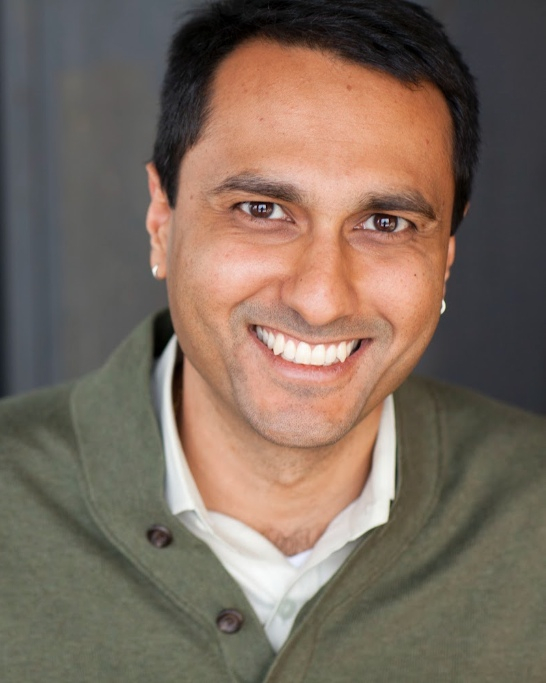How the Rabbi Ties His Shoes
Editor’s Note: This month we are celebrating both the twentieth anniversary of the Martin Marty Center and the ninetieth birthday of Martin Marty
Editor’s Note: This month we are celebrating both the twentieth anniversary of the Martin Marty Center and the ninetieth birthday of Martin Marty. Marty would say that our focus ought to be on the Center, not on him, and for the most part it is. However, Marty has also said that part of the mission of Sightings is to help “interpret the interpreters” of religion in public life, and for the past half-century and more there has been no more notable interpreter of religion in American public life than Martin Marty. So we took the occasion to put together a series of reflections on Marty’s unique contributions to the public understanding of religion from authors who are themselves leading interpreters—whether in academia or in popular media. Here is the fourth, with one more to follow.
 It was the spring of 2002. I was finishing up my doctoral thesis and trying to convince people that the nonprofit organization I was launching, Interfaith Youth Core, was worth paying attention to. It wasn’t going so well. My dad, after learning that I was eschewing the tenure track and instead trying to make a career out of what he hoped would be my nice little hobby, said, “We immigrated to America for this?”
It was the spring of 2002. I was finishing up my doctoral thesis and trying to convince people that the nonprofit organization I was launching, Interfaith Youth Core, was worth paying attention to. It wasn’t going so well. My dad, after learning that I was eschewing the tenure track and instead trying to make a career out of what he hoped would be my nice little hobby, said, “We immigrated to America for this?”
I heard that Martin Marty was speaking at a benefit dinner in Chicago. I bought a $65 ticket, a significant purchase for me at the time, and planted myself at the doorway outside the banquet hall. When Marty approached, I about accosted him.
My words tumbled out so fast—something about being inspired by his scholarship and wanting his advice—that I’m surprised he understood anything I said. But he must have recognized the combination of eagerness and nervous energy and the very small nugget of a there there, so he smiled and said it sounded interesting and sure, come on by to his office in Riverside.
We set an appointment for the following week, for which I arrived a half hour late. Still, he gave me ninety minutes. I just went on and on and on about wanting to build an organization that helped to resolve the tensions that he set out in The One and the Many, an organization that pulled in the opposite direction of the movements that he and Scott Appleby had profiled in The Fundamentalism Project, a space where diverse faith commitments and modernity might harmonize into a healthy pluralism.
Marty didn’t gush or fawn, he simply said that it sounded interesting and hopeful and he’d like to be involved.
He spoke at our early conferences, knowing that people would come to see him, and that, if IFYC did our job, we might capture their attention in the wake of his presence. When PBS did its first piece on IFYC, he sat for an interview and spoke to them about the importance of engaging young people on college campuses in interfaith work. He came to talk to our staff, offering encouragement for the difficult day-to-day work of building a nonprofit organization. Every once in a while he would invite me to tag along when he was speaking at a public event in Chicago. “Why don’t you join me on stage, Eboo,” he would say.
Every one of those moments sparkle in my memory. I am as grateful for them now as I was then.
About once a year, I’d head over to Marty’s apartment (he’d moved to the John Hancock Center) to sit with him and his wife Harriet. He’d inquire about the latest developments at IFYC and in my family, and I’d just listen to him reflect out loud.
One time I told him I was on my way to do a lecture on Bonhoeffer at Union Theological Seminary and I felt him glow. Bonhoeffer, Marty said, reminded him of Goethe’s understanding of the term “archetype”: a clearing in the woods, a place where cultivation occurs, where the light falls.
He’d open his wallet and take out a tattered sheet of paper with the names of all the people who had earned PhDs under him, with marks by the ones who had gone on to lead institutions of higher education.
He showed me pictures of his kids—he’d adopted several. When I got home from the University or a college lecture, mostly I belonged to my kids, he would say. You know, throwing the football around in the yard. As the kids got older and started going their separate ways with friends and the like, we decided on a Sabbath. Saturday evenings to Sunday mornings we would spend together as a family.
He wasn’t giving me advice directly, but I’m not dumb, I took note. After all, the subtext was clear: go ahead and accomplish things, kid, but know what matters and center that.
He somehow managed to give something like three thousand public talks and almost never missed a class at the University of Chicago.
When you think about it like a resume, it sounds superhuman. But when you meet Marty, it feels like you are in the presence of someone who is just very fully human.
I learned from Marty that you can be critical without being mean, that if you take the world apart in your writing you have a responsibility to try to put it back together in improved form.
There is a story in the Jewish tradition about a student going to see a great rabbi, not principally to study Torah or Talmud, but to watch how the rabbi ties his shoes. That’s how I came to regard my sessions with Marty.
There are people who are great, who make a powerful impact on the world. There are people who are good, who are kind and generous to those around them. There are very, very few people who are both good and great. Martin Marty is one. It has been the privilege of a lifetime to spend time in his presence.
Image: The building formerly known as the John Hancock Center | Photo Credit: Manav Sharma/Flickr (cc)
 Author, Eboo Patel, is a leading voice in the movement for interfaith cooperation and Founder and President of Interfaith Youth Core (IFYC), a national nonprofit working to make interfaith cooperation a social norm. He is the author of Acts of Faith, Sacred Ground, and Interfaith Leadership. Named by U.S. News & World Report as one of America’s Best Leaders of 2009, Eboo served on President Obama’s Inaugural Faith Council. He is a regular contributor to the public conversation around religion in America and a frequent speaker on the topic of religious pluralism. He holds a doctorate in the sociology of religion from Oxford University, where he studied on a Rhodes scholarship. For over fifteen years, Eboo has worked with governments, social sector organizations, and college and university campuses to help realize a future where religion is a bridge of cooperation rather than a barrier of division. Author, Eboo Patel, is a leading voice in the movement for interfaith cooperation and Founder and President of Interfaith Youth Core (IFYC), a national nonprofit working to make interfaith cooperation a social norm. He is the author of Acts of Faith, Sacred Ground, and Interfaith Leadership. Named by U.S. News & World Report as one of America’s Best Leaders of 2009, Eboo served on President Obama’s Inaugural Faith Council. He is a regular contributor to the public conversation around religion in America and a frequent speaker on the topic of religious pluralism. He holds a doctorate in the sociology of religion from Oxford University, where he studied on a Rhodes scholarship. For over fifteen years, Eboo has worked with governments, social sector organizations, and college and university campuses to help realize a future where religion is a bridge of cooperation rather than a barrier of division. |
Sightings is edited by Brett Colasacco (AB’07, MDiv’10), a PhD candidate in Religion, Literature, and Visual Culture at the University of Chicago Divinity School. Sign up here to receive Sightings via email. You can also follow us on Facebook and Twitter.

